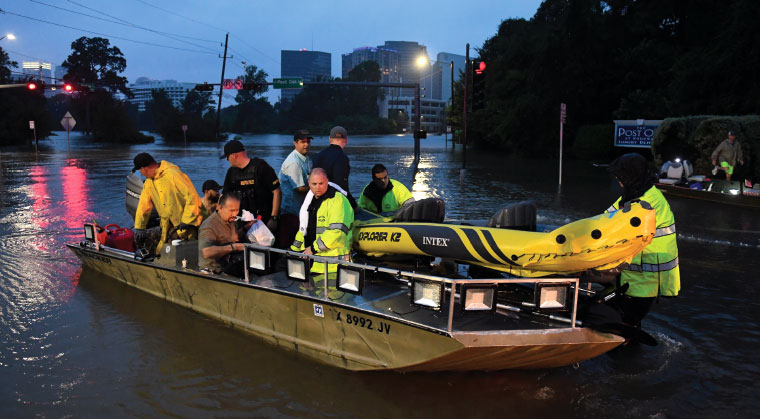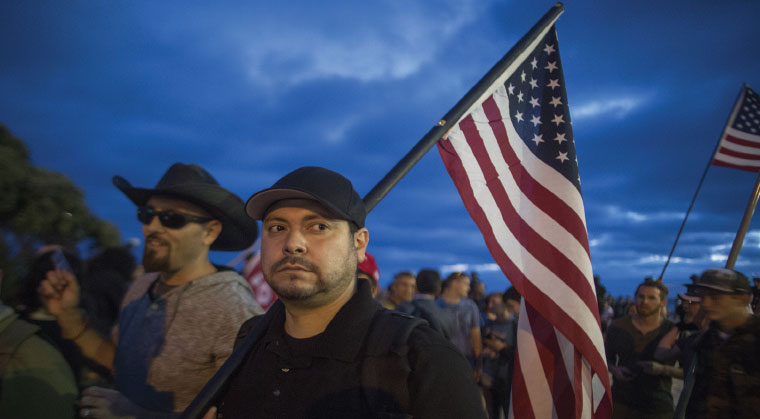Testing Israel’s Mettle on Temple Mount


MOUNTED POLICE Border guards hold down the fort outside the Temple Mount as religious tensions threaten a fragile status quo (PHOTO: Flash 90)
E very terror attack is reprehensible. Especially one that costs lives leaving bereaved families to cope with an irreplaceable loss.
For Israeli society the repercussions from each attack are different. Last Friday’s murder of two border guards at the Temple Mount endangers both security and the fragile fabric of religious tolerance that Israel has painstakingly weaved.
From a security standpoint the terrorists held Israeli citizenship. They hailed from Umm al-Fahm a city of 52 000 Israeli Arabs in the Jezreel Valley through which runs Route 65 a main thoroughfare from the Mediterranean coast to the vicinity of Tzfas. It can’t be cordoned off or isolated like remote West Bank villages.
The gunmen snapped a selfie on the Temple Mount shortly before they exited to shoot the police. Which means the Muslim Wakf responsible for security on the Temple Mount let them in without a security inspection or they obtained their guns from a weapons cache on site.
After the shootings the terrorists raced back onto the Temple Mount. Colleagues of the slain border guards gave chase and eliminated the gunmen. Al Jazeera’s initial headline reported three Palestinians killed after an “altercation” with Israeli police. Had Israeli border guards not pursued them the terrorists would have holed themselves up in a Temple Mount mosque. Imagine Al Jazeera the BBC CNN and others with ongoing satellite coverage of Israeli security forces “setting siege” to one of Islam’s holiest sites to extricate three men who got into an “altercation.”
The two murdered border guards were members of Israel’s 139 000-strong Druze community. According to their tradition the Druze descend from Yisro. This was a tough loss for Jewish Israelis who take pride in the Druze minority and their full participation in Israeli society.
What wasn’t the slightest bit shocking is how Palestinian Authority chairman Mahmoud Abbas once again spoke out of both sides of his mouth. He condemned the attack in a phone conversation with Prime Minister Netanyahu intended for Western media consumption. On its official Facebook page Fatah posted a different message to its Arabic-speaking audience: “We must all carry out ribat [religious conflict] in the Al-Aqsa Mosque. We have to prevent them in any way whatsoever from entering the Sanctuary. They have no right to defile it. Let us stand before them with chests bared to protect our holy places.”
Palestinian Media Watch an Israeli NGO that monitors the PA’s Arab language media noted this posting included a rebroadcast of an Abbas speech from October 17 2014 that marked the beginning of the “knife intifada ” in which 11 Israelis were murdered in car rammings and stabbing attacks.
Security forces are not expecting a repeat performance. The Palestinian Authority has a big and foul mouth especially on social media but Israeli intelligence forces are scouring those same social media sites to profile “lone wolf” attackers before they strike. Israeli raids on Arab villages have shut down most — but obviously not all — of their illicit weapons manufacturing capabilities.
The PA’s international support is at low ebb. President Trump issued a statement supporting Israel’s zero-tolerance policy on terror. The International Monetary Fund reports that foreign aid to the PA has shrunk from $2.7 billion in 2008 to less than $800 million in 2015.

Police Chief Roni Alsheich (R) comforts the father of slain policeman Haiel Sitawe with Minister of Internal Security Gilad Erdan
Yet as the tourist industry enters its high season Monday’s early morning news programs in Israel probed whether Jerusalem’s Old City is safe in the aftermath of this attack.
It’s a trite question that could be asked of almost any terror attack anywhere. It’s also more of a question to Tel Aviv–based talk show hosts who couldn’t find the Old City even with Waze as opposed to the loyalists for whom Shabbos wouldn’t be Shabbos without davening at the Kosel the Churvah or the Ramban.
Last Shabbos was an exception though. Reports that police had closed the Kosel were exaggerated but kept people away. Police did close the Jaffa Gate forcing Jews to take a few extra steps to circle the gate while they concentrated on checking identity cards of Arabs trying to enter.
By Monday morning the Old City was wide open including the Temple Mount but just in case border guards commandeered the Har Tzion parking lot in numbers normally seen only on Chol Hamoed Pesach and Succos or on Ramadan Fridays in case they were needed for a rapid deployment.
The extra security is a necessary precaution.
It is unfortunate that it took Friday’s carnage to focus attention on Har Habayis 20 meters above the Kosel relegating the controversy swirling over prayer arrangements at the Kosel to the backseat.
That issue may or may never be solved but the greater lesson for Israeli authorities is the stark reminder of why Israel cannot afford to relinquish control — security or otherwise — in Jerusalem. (Originally featured in Mishpacha Issue 669)
Oops! We could not locate your form.













